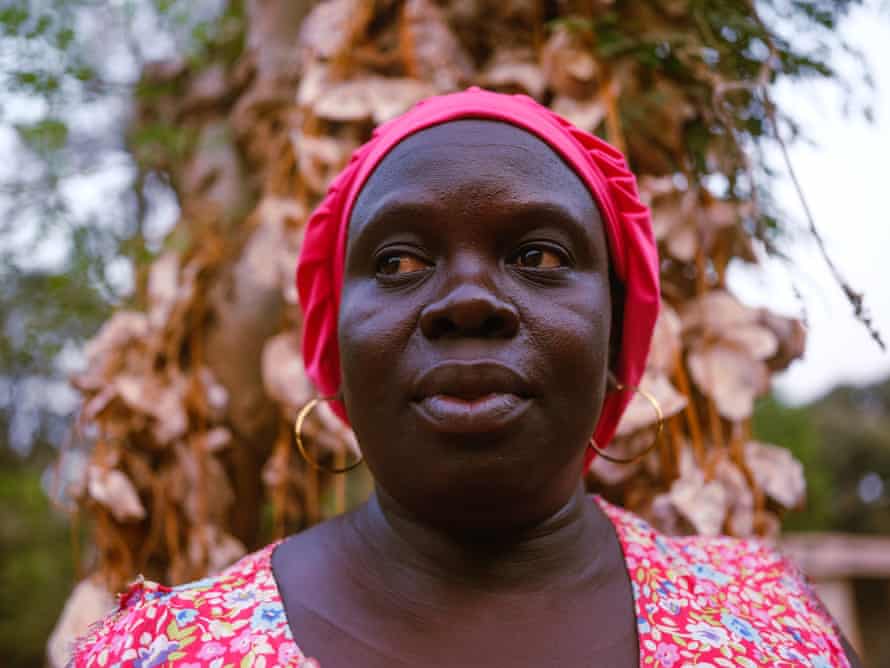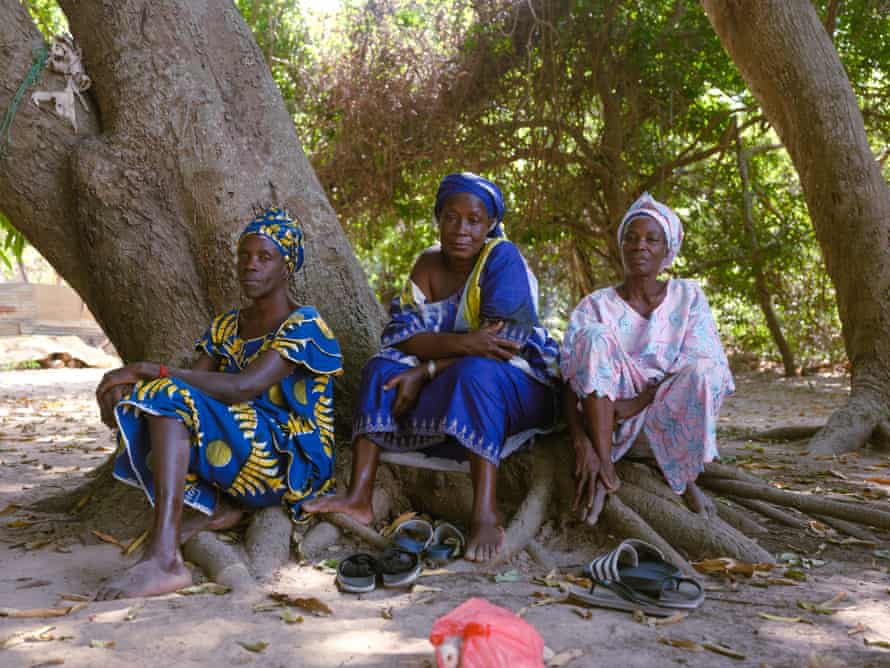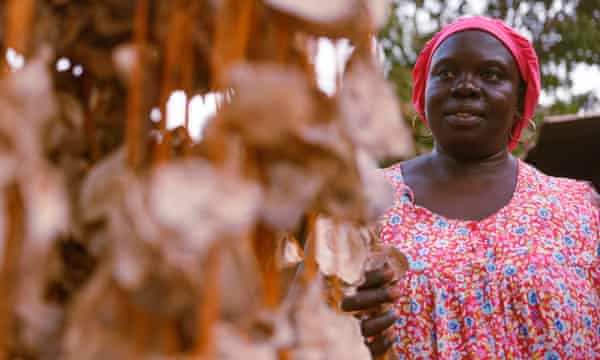‘Ecofeminism is about respect’: the activist working to revolutionise west African farming
Mariama Sonko is an unstoppable force who continued her work even when she was ostracised by her community in Senegal

Outside Mariama Sonko’s home in the Casamance region of southern Senegal pink shells hang on improvised nets that will be placed in mangroves to provide a breeding spot for oysters.
Normally, women collecting oysters chop at the branches – a method that can harm the mangroves. But these nets allow them to harvest sustainably, says Sonko, who is trying to revolutionise agriculture in west Africa.
Sonko, 52, heads Nous Sommes la Solution (NSS, We are the Solution), an ecofeminist movement of more than 500 rural women’s associations in Senegal, Ghana, Burkina Faso, the Gambia, Guinea-Bissau, Guinea and Mali. The movement promotes sustainable agroecology and fights large-scale industrial farming.
“We promote agroecology and food sovereignty in Africa. Women are invaluable actors for the development of the rural areas,” she says. “We want to valorise this tireless work of women who are concerned about the environment and the health of their families. They have always worked in agriculture, and they do not use the products that ruin the ecosystem nor the health of humans.”
In Senegal, the network is made up of nearly 10,000 women in more than 100 local associations across the south.
Casamance is considered Senegal’s breadbasket region because of its lush, fertile landscapes. Its verdant plant life is a stark contrast to areas farther north, including the capital, Dakar, where sand and scant brush dominate.
Sonko, who is national coordinator of NSS in Senegal, says her work is about changing attitudes to farming and about women’s role in protecting the environment. Her organisation promotes sustainable farming methods, which are often rooted in traditional practices. Knowledge of these is mostly held by women, she says.
“It’s the indigenous knowledge and the practices that have always supported food sovereignty and this knowhow is in the hands of the women … Ecofeminism for me is the respect for all that we have around us.”

Her activism has not always been easy. Sonko recalls a controversy from nearly a decade ago. A landowner had allowed some women in Sonko’s village to build a garden on his plot to grow food for him to sell and for the women’s families to eat.
For five years, the women tended the plants and trees. Then, as the trees began to bear fruit, the owner ordered the women off the land. “He made the people who did all the work leave!” says Sonko, with incredulity.
She tried to persuade the landowner, who was an influential figure in the community, to change his mind. He didn’t. Instead, he asked her family to pressure her to back down. When she refused, she was ostracised from community gatherings – a high price to pay in a small village. At town meetings, she was silenced. “They said I had come to mix up people’s minds. For almost two years they would not let me speak. It really hurt me.”
But it didn’t stop her. Since then, her work and influence has grown. She now helps local organisations run agricultural projects that increase women’s incomes.
“The women are working so hard, and they don’t pay the women for this work. They do it with a big heart, but they are not recognised for all that they do.”

One activity that has been particularly successful, and one of which Sonko is most proud, is the production of bio-fertiliser, which women make from cow dung to use in their fields and sell for 5,000 CFA francs (GBP6.50) a bag to other farmers.
She has also been involved in developing an all-natural seasoning product, Sum Pack, made from local herbs – an alternative to the bouillon cubes many families in Senegal use to spice up meals, which have a high salt content that can contribute to high blood pressure.
Sonko is campaigning for funding from the Senegalese government to help increase production of Sum Pack. She is also trying to change the law that prohibits farmers from using locally produced seeds. “We want them to change the law to favour local production,” she says.
Senegal’s agricultural policies support large- and small-scale farming, but there is little or no government support for ecological agriculture, says Sonko. The UN food systems summit this week is unlikely to help her cause. Civil society groups have already threatened to boycott the global meeting, accusing organisers of prioritising the interests of big corporations and sidelining small-scale farmers.
“The general concerns that are addressed are the concerns of the multinational corporations,” she says. “They should not favour them at the cost of others who have less money, like small farmers such as us.”
Sonko is also on a mission to change attitudes towards women at home. “When I was small, I saw my mother woke up at 5am and went to sleep at 11pm,” she says. “It’s too much. When I became a mother, I changed that. The women were doing so much housework. When I [married], my husband already had sons. I taught them how to do housework, too. They do it alongside the girls.
“Things must change, because the [free] time the men have, women should have that time to do things as well. Because what a man can do, a woman can do as well.”
